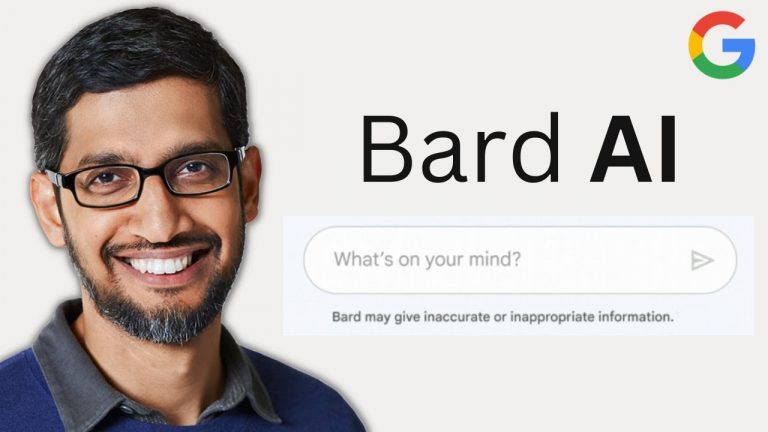
Google is planning to onboard conversational AI to its flagship search product, following the intimidating momentum gathered so far by rival, OpenAI’s ChatGPT.
Alphabet’s CEO Sundar Pichai revealed this in an interview with Wall Street Journal, where he explained that the plan involves using Large Language Models (LLM) to elaborate search contexts with conversational features.
“Will people be able to ask questions to Google and engage with LLMs in the context of search? Absolutely,” he said.
Tekedia Mini-MBA edition 14 (June 3 – Sept 2, 2024) begins registrations; get massive discounts with early registration here.
Tekedia AI in Business Masterclass opens registrations here.
Join Tekedia Capital Syndicate and invest in Africa’s finest startups here.
Google has already said it would integrate LLMs into search, but this is the first time the company has announced plans for conversational features.
Alphabet, Google’s parent company, was rattled by the emergence of ChatGPT and Microsoft’s decision to incorporate it into Bing, its search engine. The web search giant has been working to protect its market dominance using AI model languages. Google launched Bard, its ChatGPT 3 equivalent; to counter the threat Microsoft’s incorporation of AI-powered chatbot may pose to its ad business.
Google controls 93.4 percent share of the worldwide search market, a near total dominance that Microsoft said it intends to disrupt by adding OpenAI’s ChatGPT 3, which provides humanlike context to queries, to Bing.
Pichai told WSJ that he saw AI chat as a way to expand its search business, rather than a threat. “The opportunity space, if anything, is bigger than before,” he said.
ChatGPT 3 triggered a global AI language model race, with Microsoft, which has invested billions of dollars in OpenAI, leading the pace. Google falls behind after apparently being rattled by the events. The tech giant issued ‘code red’ late last year, following the ChatGPT 3 frenzy, which saw the chatbot racked up more than 100 million users in about three months after launch – the most for any company.
Bard hurriedly launched, failed to produce convincing performance during a test run, giving credence to ChatGPT as the top choice in the AI chatbot frenzy. Though Google said it does not intend to incorporate Bard into search for now, it has not concealed its plan to expand the use of AI language model in its business. Bard is designed strictly as a chat product on a standalone site and it’s so far not used in search.
OpenAI recently rolled out GPT 4, and improved version of its AI language model that it has placed on premium. Microsoft has also integrated it into Bing to use its uncanny abilities to further promote the search engine.

Google employees had criticized the company’s rush to launch Bard, blaming the decision for the incorrect, inaccurate or inappropriate responses the chatbot gave during its trial.
But Pichai recently said Google would soon switch to a more capable language model in an effort to close the gap.
Last month, the CEO told employees that a lot of things will go wrong as the company works to expand access to the AI language model. Google plans to allow more collaboration between divisions like Google Brain and DeepMind, its two primary AI units, as a way to ensure efficacy of its AI language model.
“Expect a lot more, stronger collaboration, because some of these efforts will be more compute-intensive, so it makes sense to do it at a certain scale together,” he said.
Conversational AI features will be added to Google’s search engine, Alphabet CEO Sundar Pichai confirmed to The Wall Street Journal, as the tech giant ramps up its artificial intelligence efforts. Pichai countered the idea that ChatGPT and other bots pose a threat to its core search business by saying, “The opportunity space, if anything, is bigger than before.” The AI race is unfolding as Google faces pressure to cut costs while increasing productivity, with WSJ reporting that Pichai “wouldn’t directly address” the prospect of more staffing cuts following January’s layoff announcement affecting 12,000 people.
Google lifted the veil on one of its AI supercomputers on Wednesday, saying it’s more powerful than Nvidia’s AI model training and deployment systems.
Labor laws in Europe are making it tougher for tech giants, including Google, to lay off staff there, Bloomberg reports. (LinkedIn News)



